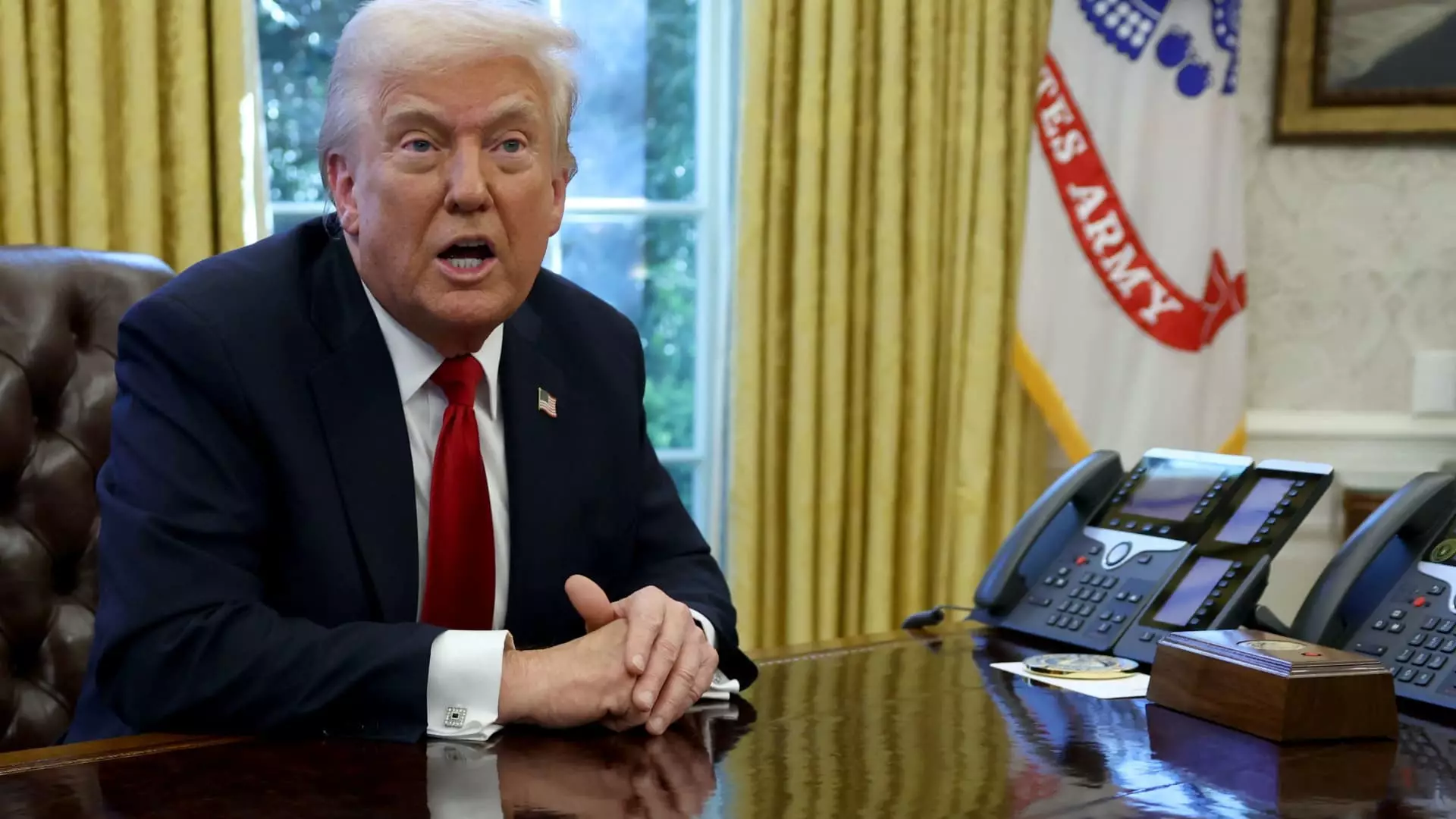In an unexpected announcement, President Donald Trump declared he would enforce a hefty 25% tariff on cars not manufactured in the United States. This bold political maneuver reflects not only the volatility of trade policies but also underscores the intricate relationship between politics and the burgeoning electric vehicle market. By positioning the tariffs as a form of economic nationalism, Trump aims to potentially bolster American manufacturing. However, the implications for key players in the automotive industry, particularly electric vehicle (EV) manufacturers like Tesla, are rapidly complicating.
The president’s commentary around Tesla CEO Elon Musk sheds light on the nuances of this relationship. Trump noted that Musk, a significant advisor to his administration, had yet to weigh in on this tariff measure, hinting at possible conflicts of interest. This situation raises important questions about whether there is a transparent decision-making process in place or if personal relationships are overshadowing policy impacts. The layering of personal ties with business interests adds a thick fog to the already complex tariffs discussion.
The Unique Position of Tesla
Tesla’s unique positioning within the U.S. auto industry cannot be overstated. Trump’s administration has shown a propensity towards supporting companies like Tesla, which align with his policy agenda of American manufacturing supremacy. Musk’s involvement extends beyond the car-making sector; he is also leading the Department of Government Efficiency (DOGE) in an effort to streamline federal spending and agency functions. With such a multifaceted role—CEO, adviser, and advocate for government reforms—Musk embodies a modern-day entrepreneur whose influence reaches into the veins of both industry and policy.
Yet, even with this strong backing, Tesla faces formidable challenges, particularly in light of global supply chains. Musk himself has previously acknowledged the difficulty in sourcing certain automotive components domestically, a statement further emphasized by Tesla’s recent communication with the U.S. Trade Representative. The dichotomy inherent in trying to localize a supply chain while grappling with international dependencies is an obstacle that many companies in the tech and automotive sectors share. Tariffs might shield U.S. manufacturers, but at what cost to innovation and accessibility?
The Competitive Landscape for Electric Vehicles
Tesla’s competitive advantage is increasingly under threat. The surge of new entrants into the electric vehicle market, alongside well-established players like General Motors and Ford, signals a rapidly evolving landscape. Domestic automakers are pivoting toward electric vehicles in an effort to capture a market share that Tesla once dominated virtually unchallenged. Yet, this burgeoning competition isn’t just limited to American firms; international contenders, notably China’s BYD, lurk in the shadows. Despite BYD’s remarkable growth, trade barriers have thus far prevented it from entering the U.S. market, creating a complex situation where American policies inadvertently protect certain domestic players while simultaneously isolating potential competitors.
The uncertainty surrounding these tariffs also extends to consumer behavior. Will this new taxation structure lead consumers to shift their preferences, favoring American-made electric vehicles over potentially superior foreign models? Or will consumer advocacy, which increasingly favors sustainability and innovation, lead them to continue seeking the best performing products available, irrespective of their origin?
Market Reactions and Future Considerations
The market’s immediate reaction to the tariff announcement seems telling—shares for companies like Tesla, Ford, and General Motors dipped slightly, indicating investor apprehension regarding potential supply chain disruptions and volatile costs. These companies are not just reacting to tariffs but also adapting strategies to remain competitive in a crowded market. The looming question for stakeholders remains: how long can this balancing act between tariffs and competitiveness be maintained before either consumer choices or investor confidence wane?
As the U.S. navigates these turbulent waters of trade policy and automotive innovation, the intersection of tariffs and electric vehicles will likely shape the future of both industries. Leaders in the electric vehicle space must adapt to changing regulations while maintaining a pulse on global market trends. They stand at a crossroad where innovation, competition, and policy must align for sustainable growth and success.

